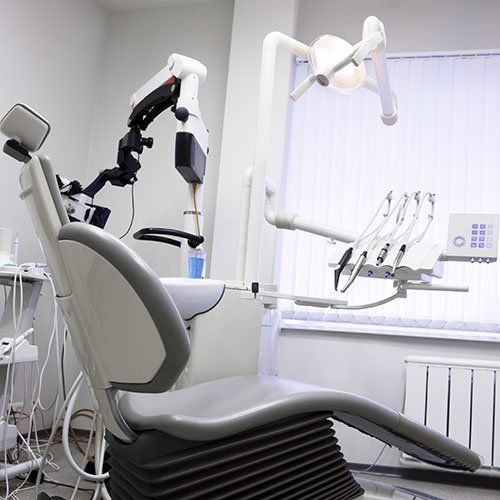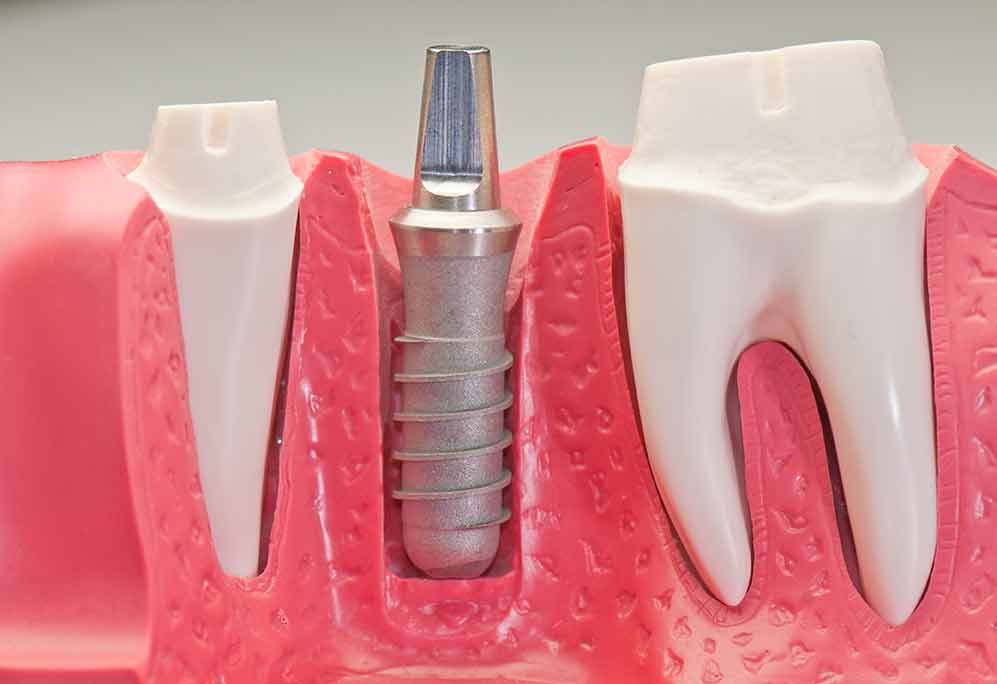An oral-maxillofacial surgeon is one who operates on the mouth and surrounding tissues. However, it's a little more in depth than that. Oral-maxillofacial surgery involves diagnosing diseases and prescribing treatments for them as well as treating injuries and defects of the maxillofacial area. Oral-maxillofacial surgeons work on both functional and aesthetic aspects of your mouth.
While there are a variety of reasons you may seek out an oral-maxillofacial surgeon, below are five of the most common.
One example of a defect is when your jaw is misaligned. Not only does this affect your appearance, but it can also negatively impact chewing, speaking and even breathing. Orthognathic surgery corrects this defect by aligning the jaw.
For jaw alignment, oral-maxillofacial surgeons work with orthodontists. Patients typically have braces put on before the surgery and keep them on through recovery after the surgery. The braces help keep the new alignment in place. It's necessary to wait for jaw surgery until after growth stops, which is between 17 to 21 years for males and 14 to 16 years for females.
Another jaw disorder is temporomandibular joint (TMJ) misalignment. The joints are located on either side of the jaw where it attaches to your skull. They're part of the mechanism for opening and closing the mouth. When they're misaligned, it can result in pain near the joint, pain in the face or neck, earaches, painful chewing and stiff jaw muscles. It can also result in a change in jaw alignment.
There are several treatment options for temporomandibular joint disorder. If it's severe enough, you may have an open-joint arthroplasty. With this procedure, the oral surgeon exposes the joint and alters the disc that cushions it. With the correct alteration, your temporomandibular joint will be aligned properly again.
Other conditions can affect your maxillofacial area, including trauma and disease. Trauma can be obvious, such as after a car accident, or it can be more subtle. For instance, you could suffer a blow to the chin and not realize until later it has misaligned your jaw. In these instances, the treatment options may be the same as the above conditions. Oral-maxillofacial surgeons can also set the jaw if it's fractured.
Oral-maxillofacial surgeons can also help diagnose and prescribe treatment for both malignant and benign cysts and tumors of the mouth. They can remove the cyst or tumor and even correct bone and soft tissue problems resulting from the removal.
Naturally, oral-maxillofacial surgeons also operate on the teeth, especially by removing impacted ones. Wisdom teeth are most likely to become impacted because they're the last to come in. If there's not enough room in your mouth to accommodate them, they stay below the gum line. This results in swelling and tenderness around the impacted tooth.
How involved the surgery is for an impacted tooth depends on your specific situation. It may be as simple as incising the gum and extracting the tooth. However, if the tooth remains embedded in the bone, it may be necessary to remove the teeth in sections to minimize bone loss. Removal of wisdom teeth doesn't impact the function of your mouth.
On the other end of the spectrum, having other teeth removed can impact the function - and aesthetics - of your mouth. In that case, you'll want to replace the missing tooth or teeth, and one of your primary options is with dental implants.
Dental implants are a multi-stage procedure. After a consultation and development of a treatment plan, the surgeon inserts a titanium rod, or root, into the jawbone. It's necessary to wait until the rod integrates with the surrounding bone. Once that happens, the surgeon places an abutment on the rod followed by the crown, resulting in a natural-looking replacement. Implants can last your entire life.
If you have one of the above situations, quite often your primary dentist or orthodontist will recommend talking to an oral-maxillofacial surgeon. Contact the
Oral & Maxillofacial Surgery Center, P.A., to discuss your treatment options.













